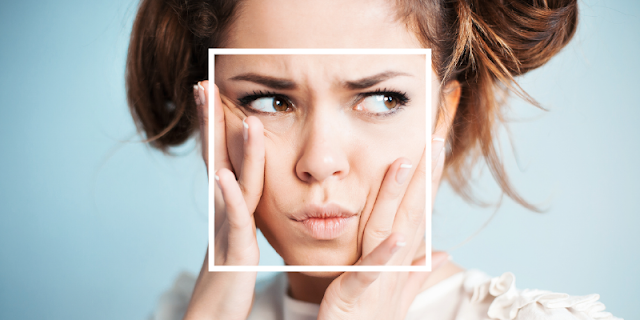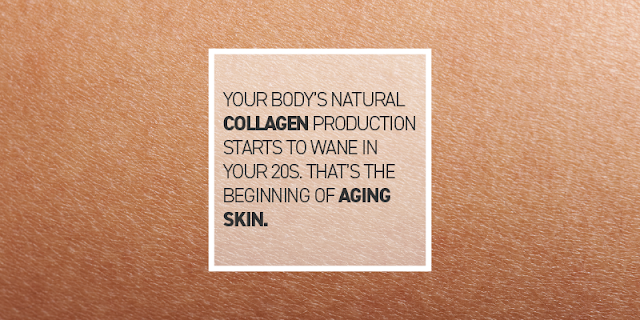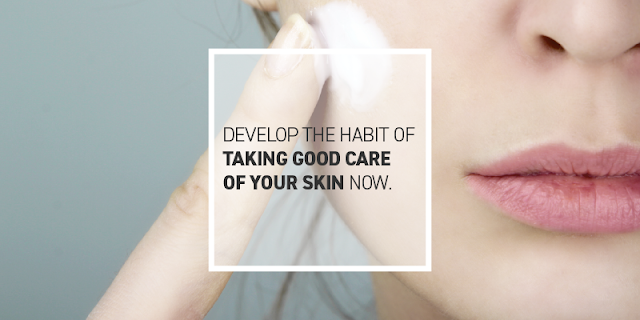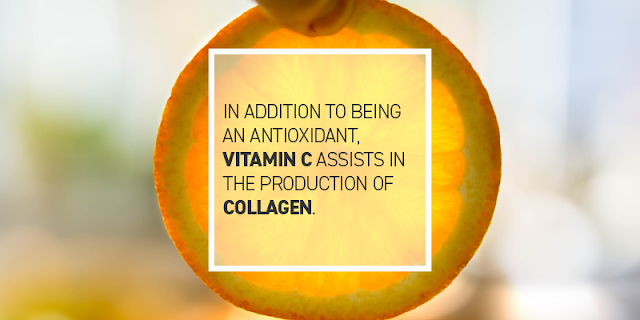The best way to cure a problem is to prevent it in the first place! This holds true for so very many things. Signs of aging are no exception.
What happens to your skin now has a huge impact on the future you. What you eat, how you interact with your skin, the environment you’re exposed to, and especially your time in the sun will all have cumulative effects over the years. This will show up as fine lines, wrinkles, age spots, and more.
What Happens to Aging Skin?
We all get older. Time is not an entity that we get to escape, and it can take its toll on your body and on your skin. As your protective barrier, cooling suit, and waste eliminator, your skin suffers a beating on a daily basis. If you don’t care for it properly, it will age more rapidly. Your 20s are the time period when good, rejuvenating processes start to slow down, and degradation kicks in a little more rapidly.
Collagen is the main protein structural element found in the skin and gives it strength and flexibility, as well as holding the rest of the skin’s tissues together. Your body’s natural collagen production starts to wane in your 20s. That’s the beginning of aging skin. You’ll start to notice fine lines and wrinkles that will deepen and progress through the years.
Your skin is also the body’s protection against UVA and UVB damage. Melanocytes in the epidermis (outermost layer) produce and store a dark pigment called melanin. Exposing your skin to sunlight produces more melanin, which makes your skin appear darker. Melanin’s job description isn’t to make you look beach-buff. It’s actually to protect you from the sun’s harmful rays. Overtime (years), melanin clumps together, forming age spots. Damage from uncontrolled free radicals (a result of environmental insults and the body’s natural metabolic processes) that are damaging to tissues will instigate this process.
Start Early to Protect your Skin
Did you catch the part about now being the prime time to begin the fight against signs of aging? In your 40s, 30s, 20s. . . .it’s never too early! The best way to slow aging is to try to prevent it in the first place. Most of the things that you can do to prevent aging in your early years are the same things that can help to slow down the aging process once it’s in full swing.
Develop the habit of taking good care of your skin now. According to the American Academy of Dermatology, the benefits of healthy skincare habits include:
- Prevent (or clear) a blotchy complexion
- Retain skin’s youthful firmness longer
- Reduce fine lines and wrinkles
- Keep complexion looking brighter and younger
- Avoid leathery skin
- Reduce skin cancer risk
Steps to Combat Aging Skin Problems
First and foremost: protect yourself from the sun! UV rays will do more than just give you a sunburn. They damage your skin at a deeper level. Cover as much skin as possible with protective clothing, sunglasses, and a wide-brimmed hat (to protect the back of your neck, too). Always protect any uncovered skin with a broad-spectrum sunscreen formulated to deliver an SPF of 30 or higher. Apply it 30 minutes before going outside, and re-apply it every 2 hours, more often if you’re wet or sweating.
Nourish your skin from the inside out by eating plenty of healthy foods like fruits and vegetables, lean proteins, and healthy fats. Oats contain natural plant chemicals to prevent skin cell damage and irritation. Look for foods high in vitamins A, C, and E, as well as selenium and omega-3 fatty acids. A diet rich in these antioxidants can strengthen your body’s defense system to combat the damage caused by free radicals. In addition to being an antioxidant, vitamin C assists in the production of collagen. Not only that but as it helps to brighten skin naturally, hyperpigmentation will fade. It can prevent your body from creating too much melanin.
Make a good night’s sleep a regular habit. It’s not called “beauty sleep” for nothing! While you sleep, your skin is making new collagen. “That’s part of the repair process,” says Patricia Wexler, MD, a dermatologist in New York. Since collagen is linked to your skin’s elasticity, adequate collagen production leads to plump skin that is less likely to wrinkle and doesn’t appear saggy. When you don’t get a full night’s sleep, your body doesn’t have the time to produce new, fresh cells and fix yesterday’s damage, so you’re practically welcoming accelerated aging with open arms. Collagen may also prematurely stiffen, creating lines and wrinkles, according to Joshua Zeichner, director of cosmetic and clinical research in dermatology at Mount Sinai Hospital in New York City.
Amp up your skincare routine. Cleanse your skin twice daily with a gentle cleanser to rid it of dead skin cells, dirt, makeup, and sweat that accumulates during the day, and debris and toxins that develop while we sleep. Opt for a soap-free cleanser designed to maintain your skin’s moisture balance, not strip it. Apply a good-quality moisturizer chosen for your skin type every day. With age, skin becomes drier. Fine lines and wrinkles can appear. A moisturizer will trap water in the skin, giving it a youthful appearance.
Frequent exercise can positively impact the look of your skin. It promotes blood flow to the skin, in turn, increases the rate of new cell growth. It’s been shown to help keep the skin flexible and supple, which can prevent wrinkles from the beginning.
Skin Care Tips From MDSUN Skin Care®
Please Visit Our Official Website - MDSUN Skin Care




Comments
Post a Comment